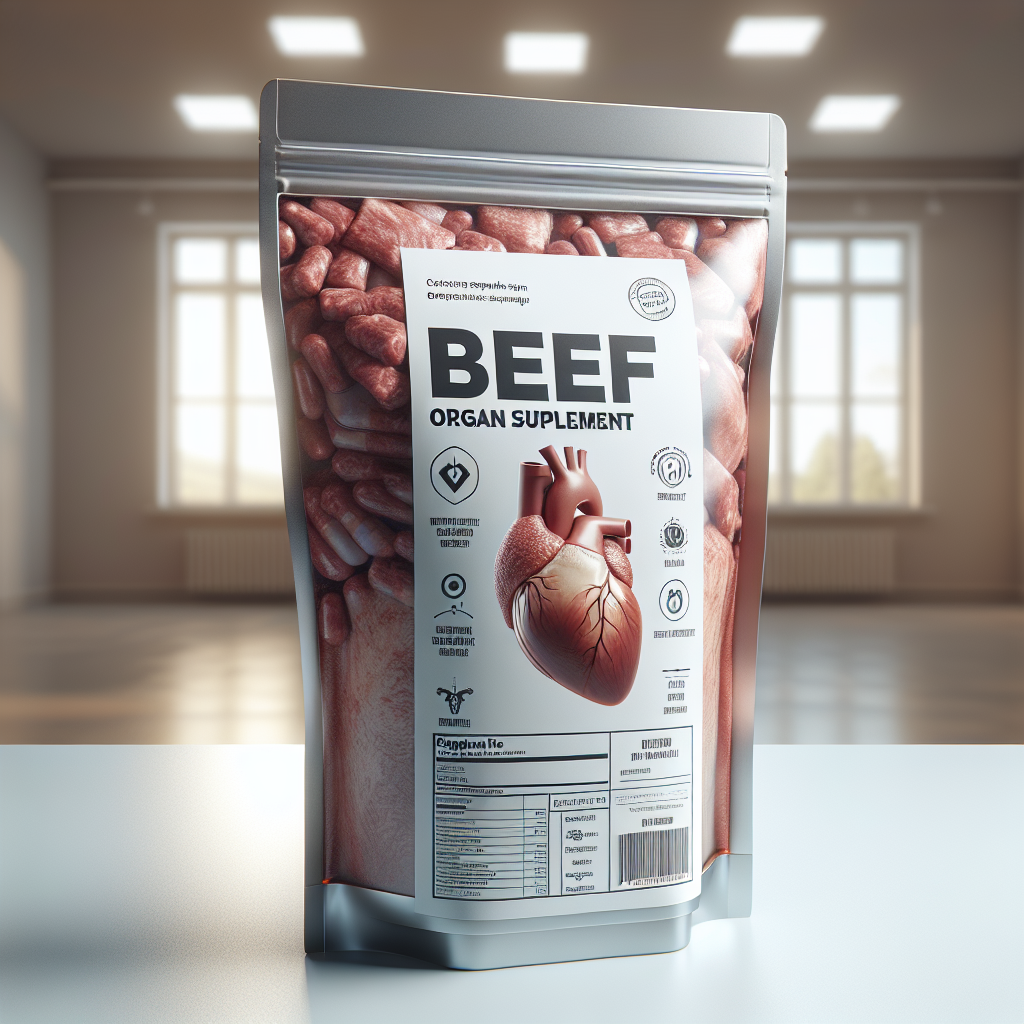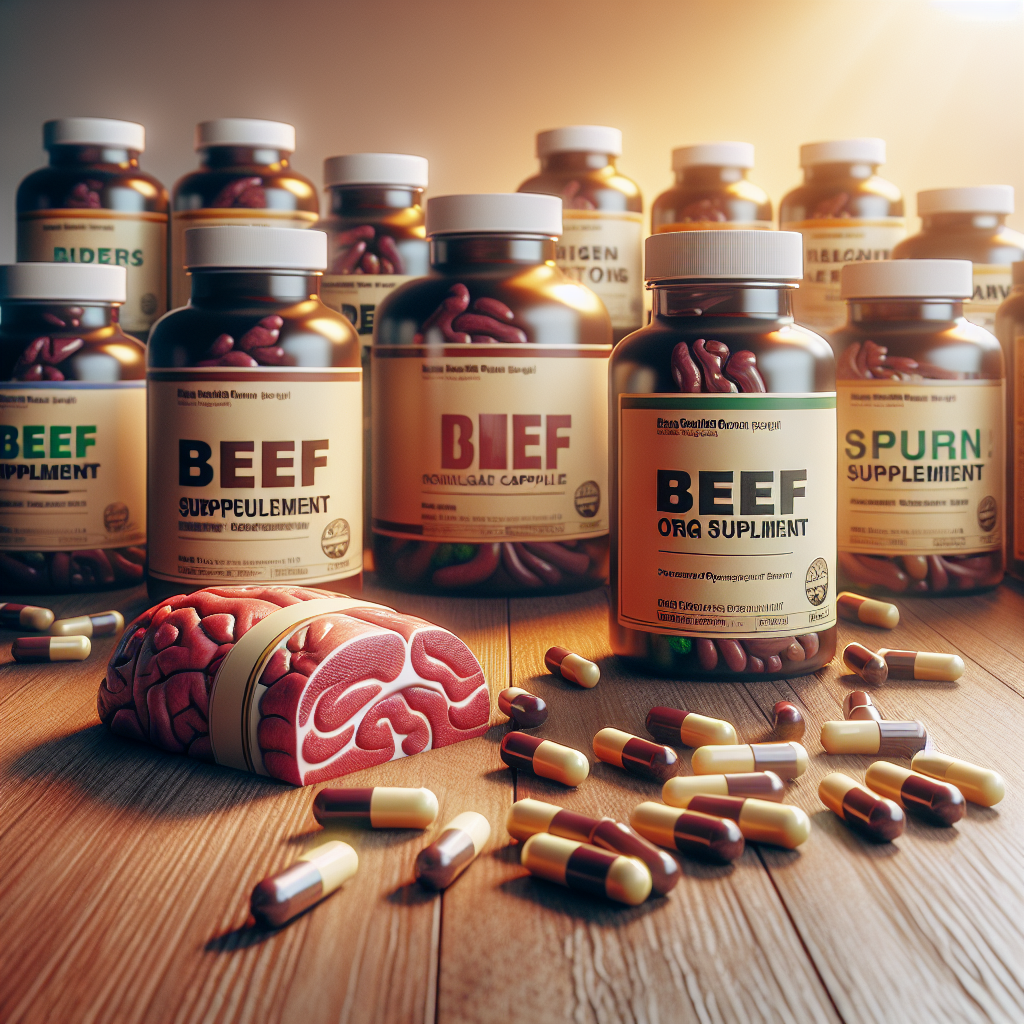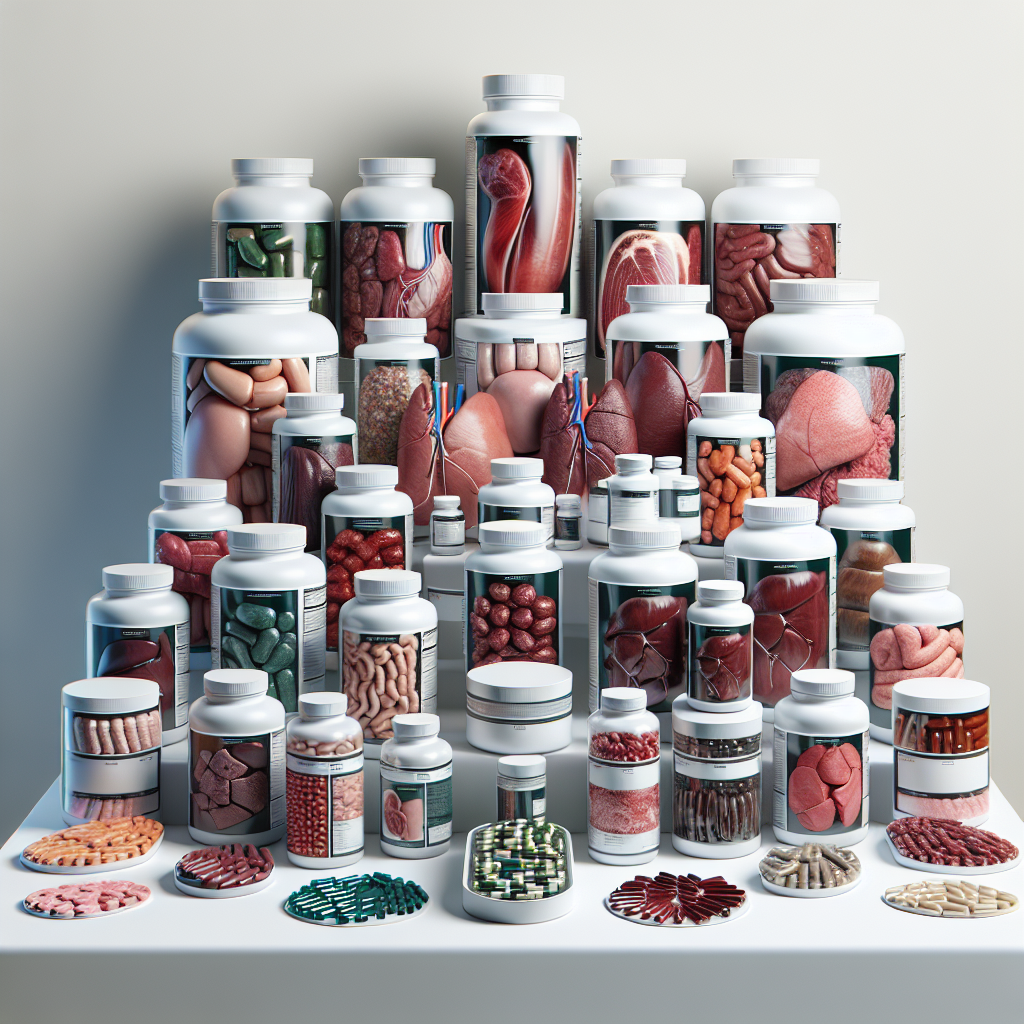When it comes to enhancing your health and well-being, beef organ supplements have been gaining traction as a powerful addition to your diet. These supplements, derived from the organs of grass-fed cattle, are packed with essential nutrients that are often lacking in the modern diet. But is beef organ supplements good for you? In this article, we will delve into the many benefits of incorporating these supplements into your daily regimen and explore why they are considered a potent source of nutrition.
Beef organ supplements include liver, heart, kidney, and other organs, each offering a unique profile of vitamins, minerals, and amino acids. For instance, beef liver is renowned for its high content of vitamin A, B vitamins, iron, and copper, making it a powerhouse for boosting energy levels and supporting immune function. The heart, on the other hand, is rich in CoQ10, a nutrient vital for cardiovascular health and energy production.
These supplements are not just a modern-day fad; they have been a staple in traditional diets across various cultures for centuries. The advanced technology and rigorous testing methods used today ensure that these supplements are safe, high-quality, and free from contaminants. By opting for organic beef organ supplements, you can rest assured that you are consuming a product that is both effective and natural.
Curious to learn more about how beef organ supplements can enhance your health? Visit our website for more information.
Nutritional Benefits of Beef Organ Supplements

Beef organ supplements are a nutritional powerhouse, offering a wide range of vitamins, minerals, and other essential nutrients that can greatly benefit your health. One of the standout features of these supplements is their high concentration of bioavailable nutrients, which means they are easily absorbed and utilized by the body.
Beef liver, often considered the most nutrient-dense organ, is packed with vitamin A, which is crucial for maintaining healthy vision, skin, and immune function. It also provides an abundant supply of B vitamins, including B12 and folate, which are essential for energy production and cognitive health. Additionally, beef liver is rich in iron, a mineral vital for oxygen transport in the blood and preventing anemia.
Another valuable organ is the beef heart, which contains high levels of Coenzyme Q10 (CoQ10). CoQ10 is a potent antioxidant that supports cardiovascular health and energy production at the cellular level. The heart is also an excellent source of B vitamins, iron, phosphorus, zinc, and selenium, all of which contribute to overall well-being.
The kidney provides a significant amount of selenium, an essential trace element that plays a critical role in antioxidant defense and thyroid function. It also contains iron, zinc, and other vital nutrients that support immune function and cellular health.
By incorporating beef organ supplements into your diet, you can ensure that you're receiving a broad spectrum of nutrients that are often missing from conventional diets. This comprehensive nutritional profile can help boost your energy levels, enhance your immune system, and promote overall vitality.
How Beef Organ Supplements Enhance Health

Beef organ supplements are not just nutrient-dense; they also offer several specific health benefits that can enhance your overall well-being. One of the primary ways these supplements contribute to better health is through their high concentration of essential vitamins and minerals, which support various bodily functions.
For instance, the abundance of vitamin A in beef liver supplements plays a critical role in maintaining healthy vision, supporting immune function, and promoting skin health. This vitamin is also essential for reproductive health and proper functioning of the heart, lungs, and kidneys.
Another key benefit comes from the rich supply of vitamin B12 found in beef organ supplements. Vitamin B12 is vital for red blood cell formation, neurological function, and DNA synthesis. Adequate levels of B12 can help prevent anemia and boost energy levels, making you feel more energetic and alert.
The high levels of iron present in these supplements are particularly beneficial for individuals who may be prone to iron-deficiency anemia. Iron is crucial for the production of hemoglobin, the protein in red blood cells that carries oxygen throughout the body. By improving oxygen transport, iron can enhance physical performance and cognitive function.
Beef heart supplements, rich in Coenzyme Q10 (CoQ10), provide powerful antioxidant properties that support cardiovascular health. CoQ10 helps in maintaining optimal heart function by improving energy production in heart cells and reducing oxidative stress.
Moreover, the presence of minerals like zinc and selenium in beef organ supplements contributes to a robust immune system. Zinc is essential for immune cell function and wound healing, while selenium plays a key role in protecting cells from oxidative damage and supporting thyroid health.
In summary, incorporating beef organ supplements into your diet can offer multi-faceted health benefits, from boosting immune function and energy levels to enhancing cardiovascular health and overall vitality.
Scientific Evidence Supporting Beef Organ Supplements

When considering whether beef organ supplements are beneficial, it’s essential to look at the scientific evidence supporting their use. Numerous studies have highlighted the nutritional and health benefits of consuming organ meats, which are often concentrated in supplement form.
A study published in the Journal of Nutrition found that organ meats like liver are exceptionally high in essential nutrients such as vitamin A, vitamin B12, iron, and folate. These nutrients are crucial for maintaining overall health, particularly for immune function, energy metabolism, and red blood cell production.
Research also indicates that beef organ supplements are rich in bioavailable nutrients, meaning the body can absorb and utilize them more efficiently compared to synthetic alternatives. For instance, a study in the American Journal of Clinical Nutrition demonstrated that the bioavailability of iron from beef liver is significantly higher than from plant-based sources, making it an excellent option for individuals with iron-deficiency anemia.
Another compelling piece of evidence comes from a study focusing on Coenzyme Q10 (CoQ10) found in beef heart supplements. Published in the Journal of Cardiovascular Pharmacology, the study revealed that CoQ10 supplementation could improve heart function and reduce symptoms in patients with congestive heart failure. This supports the use of beef heart supplements for cardiovascular health.
Additionally, research has shown that beef organ supplements contain peptides and enzymes that support digestive health. Findings published in the Journal of Gastroenterology suggest that these components can enhance gut health by promoting nutrient absorption and reducing inflammation.
Overall, the scientific evidence underscores the nutritional richness and health benefits of beef organ supplements. The high bioavailability of essential vitamins and minerals, combined with specific health-promoting compounds like CoQ10, makes these supplements a valuable addition to a balanced diet.
Potential Side Effects and Considerations

While beef organ supplements offer a range of health benefits, it’s essential to be aware of potential side effects and considerations before incorporating them into your diet. Understanding these can help you make informed decisions and use supplements safely.
One of the primary concerns with beef organ supplements is the risk of hypervitaminosis, particularly vitamin A toxicity. Organ meats like liver are extremely rich in vitamin A, and excessive intake can lead to symptoms such as nausea, dizziness, blurred vision, and even liver damage. It’s crucial to follow recommended dosages and consult with a healthcare provider, especially if you are pregnant or have pre-existing health conditions.
Another consideration is the source of the beef organs. Quality varies significantly depending on the farming practices used. Organ meats from grass-fed, pasture-raised cattle are generally considered superior due to lower levels of contaminants and higher nutrient density. Always choose supplements from reputable brands that provide transparency about their sourcing and processing methods.
Allergic reactions are also a possible side effect. Though rare, some individuals may be allergic to specific proteins found in beef organs. Symptoms can range from mild (such as skin rashes) to severe (such as anaphylaxis). If you have known food allergies, it’s advisable to start with a small dose and monitor your body’s response.
Moreover, those with gout or high uric acid levels should exercise caution. Organ meats are high in purines, which can exacerbate gout symptoms or lead to flare-ups. Consulting with a healthcare provider before starting beef organ supplements is wise for individuals with these conditions.
Finally, interactions with medications are another important consideration. For example, high vitamin K content in some organ meats can interfere with blood-thinning medications. Always discuss with your healthcare provider to ensure that beef organ supplements do not adversely interact with your prescribed medications.
By being aware of these potential side effects and considerations, you can better navigate the use of beef organ supplements and enjoy their benefits safely and effectively.
Choosing Quality Beef Organ Supplements
When it comes to beef organ supplements, not all products are created equal. Choosing high-quality supplements is crucial to ensure you reap the health benefits without exposing yourself to potential risks. Here are some key factors to consider when selecting beef organ supplements.
Source of the Organs: The quality of beef organ supplements heavily depends on the source of the organs. Look for supplements derived from grass-fed, pasture-raised cattle. These animals are less likely to be exposed to harmful chemicals and antibiotics, making their organs richer in essential nutrients.
Processing Methods: Check the processing methods used by the manufacturer. Freeze-drying is often considered the best technique as it preserves the nutrients in the organs without the need for additives or preservatives. Avoid supplements that use high-heat processing, as this can degrade the nutrient content.
Transparency and Testing: Reputable brands will provide detailed information about their sourcing and processing methods. They should also conduct third-party testing to ensure the purity and potency of their supplements. Look for products that have been tested for heavy metals, pesticides, and other contaminants.
Ingredient List: Always read the ingredient list carefully. The best beef organ supplements will contain minimal ingredients, primarily the organ meat itself. Avoid products with unnecessary fillers, binders, or artificial additives.
Certifications: Certifications from organizations like the USDA Organic or Non-GMO Project can provide additional assurance of the product's quality. These certifications indicate that the supplement meets stringent standards for organic farming and non-GMO practices.
User Reviews and Recommendations: Lastly, consider user reviews and recommendations. Customer feedback can offer valuable insights into the effectiveness and quality of the supplement. Look for consistent positive reviews and any endorsements from healthcare professionals.
By considering these factors, you can confidently choose high-quality beef organ supplements that will enhance your health and well-being. For more information, visit our website at Original Tonics.

